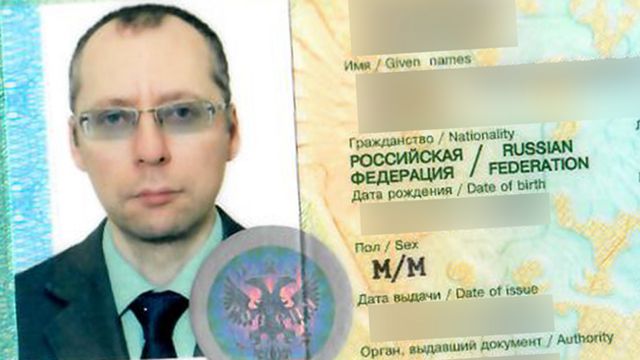The BBC News Russian Service app is available for IOS and Android . You can also subscribe to our Telegram channel.

image copyrightBoris Bondarev
Diplomat Boris Bondarev, who has resigned as adviser to Russia’s UN mission in Geneva, told the BBC he fears for his safety, but has yet to decide whether to seek political asylum abroad. On Monday, Bondarev released a statement strongly condemning Ukraine’s war against Russia.
On Tuesday, Bondarev’s resignation was commented by the press secretary of the President of Russia Dmitry Peskov. In response to a question from journalists, he said that the Kremlin was not familiar with this letter, but at the same time he added: “Here, probably, we can only say that Mr. Bondarev is no longer with us, rather, he is against us” (quoted by the Interfax agency ).
“He condemns the actions of the Russian leadership, and the actions of the Russian leadership are supported by almost the entire population of our country,” Peskov said. “It means that this gentleman opposed the general consolidated opinion of our country.”
We publish the full text of Bondarev’s BBC BBC interview. He spoke to our correspondent in English, his words are quoted in translation.
BBC BBC: Why did you make this decision?
Boris Bondarev: The reason is that I completely disagree with what my government is doing and has been doing since at least February, and I no longer want to be associated with this.
BBC BBC: How difficult was it for you to go for it?
B.B.: The question was not even whether to do it or not. There was a decision to do it [and it was necessary to understand] when. I didn’t see any alternative.
BBC BBC: Are you afraid for your safety?
BB: I think you can say that.
BBC: How shocked were you by the offensive in Ukraine on February 24?
BB: I was shocked – like any normal person. Because the first thing I heard on the morning of February 24 was that Russian military aircraft were bombing Kyiv and Kharkov. And the last time these cities were bombed during the Second World War – and it was done by the Germans. And now we are bombing them. I think that all Russians should be shocked by this.
BBC: How common is this feeling of shock and objection to what is happening in Ukraine in the Russian Foreign Ministry?
BB: To be honest, I don’t think it’s common. This is not.
BBC: Why is this happening?
BB: I think most people listen to propaganda and what their bosses tell them. When you work in the ministry, there is a hierarchy, so you must follow the instructions of the leadership. And for many years the critical approach in the ministry was largely eliminated. So most people just believe whatever they are told, without any criticism, without independent reflection.
BBC: To what extent do you think your decision to resign can make a difference?
BB: To be honest, I don’t think it will change much. But I think it can be a brick in a wall that can eventually be built. I hope so.
BBC BBC: How strong was the shock among your colleagues? Have you talked to them about it?
BB: Yes, we talked. At first, the general mood was, it seemed to me, was joy, satisfaction, euphoria. That finally [Russia] took some radical steps. Now they are no longer so happy, because we first of all had problems with the economy. But I do not think that most of them will repent and change their views. They can become a little less radical, a little less aggressive. But not peaceful.
BBC BBC: What do you plan to do next and do you intend to apply for political asylum? To protect yourself?
BB: To be honest, I don’t know. From a legal point of view, I did not do anything illegal, did not commit any crime. I just resigned and said what I think. But it seems to me that, of course, I should worry about my safety.
BBC: Given what your president has said in the past, can you be considered a traitor to your country?
B.B.: Yes, I think they already consider me one.
BBC BBC: And how did your boss in Geneva react?
BB: I don’t know, I haven’t seen him since I submitted my resignation. I haven’t been on a mission since then, and I don’t know about his reaction. But I don’t think it will be positive.
To keep getting BBC news, subscribe to our channels:
Download our application:





